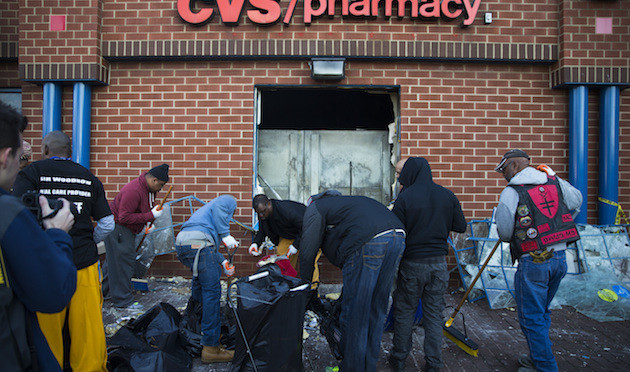A True Test of Citizenship
By: Donna Paoletti Phillips
From May 2015

There has been a lot of buzz lately about the national movement from the Joe Foss Institute for state legislatures to mandate graduating high school students pass the U.S. citizenship test. Among the standard arguments against such a test are the valuable class time it will take, the fact that it is an inert set of facts that can be memorized, and that lacking any other curricular support, passing this test will become a matter of “kill and drill” for social studies teachers and students to endure. Indeed, I expressed these same concerns in my interview by Jane Williams on Bloomberg EDU radio.
But it has taken me a while to synthesize why this initiative rests so uneasily with me. As I watched in horror, along with the rest of America, the violence and looting in Baltimore in reaction to the death of Freddie Gray, it hit me: There is nothing a 100-question test of citizenship will do to prevent or help what happened in Baltimore and what has been happening in other cities around the country. What this initiative fails to recognize and address is the aspect of civic education that is unique, profound, and vital in a flourishing democracy; the dispositional learning of our youngest citizens. Content and skills are important. One should know the voting age, how often we elect different offices and how laws get passed. But caring enough to vote, attend a community meeting, or engage with other citizens around an important issue is a disposition that needs to be central in our civic education goals.
The American Enterprise Institute’s (AEI) recent report showed, among other things, that while teacher professional development in civic education works toward building civic dispositions in students, “what remains unaddressed is how or whether the civic dispositions encouraged coalesce into a broader sense of attachment to the American polity.”
No standardized test will teach students how to find and use their voice, nor support their attachment to our democratic system. Arizona Democratic state senator David Bradley opposed the test stating, “My point… is tests don’t make citizens, citizens are tested by their actions.” And so if this is true, what does that say about the nature of citizenship expressed by the young citizens in Baltimore the night of April 27? Would knowing the number of amendments have stopped any one of them from taking the actions they did? Likewise, does having memorized the name of the leader of the Civil Rights movement influence those who came the next morning to help clean up.
Our real crisis in civic education lies in how teachers can shape the civic dispositions of our students. An overly simplistic state mandate to deliver an inert test of facts is not the answer to this crisis. Professional development for teachers that has lasting impact on their instruction to bring about dispositional changes and reactions in students is the beginning of an answer.
Let’s continue the conversation. What does it take to make true dispositional changes in our students? What does a classroom look, sound and feel like where this takes place?

Our civic education will not necessarily address the underlying issues that exist within our current justice system and social structures, but transformational dispositional civic education can shape our youth so that when faced with injustice, prejudice, and discrimination, our youngest citizens are not the ones who show up at night adding to the existing problem, but rather they are the citizens who come the next morning to begin fixing it.


